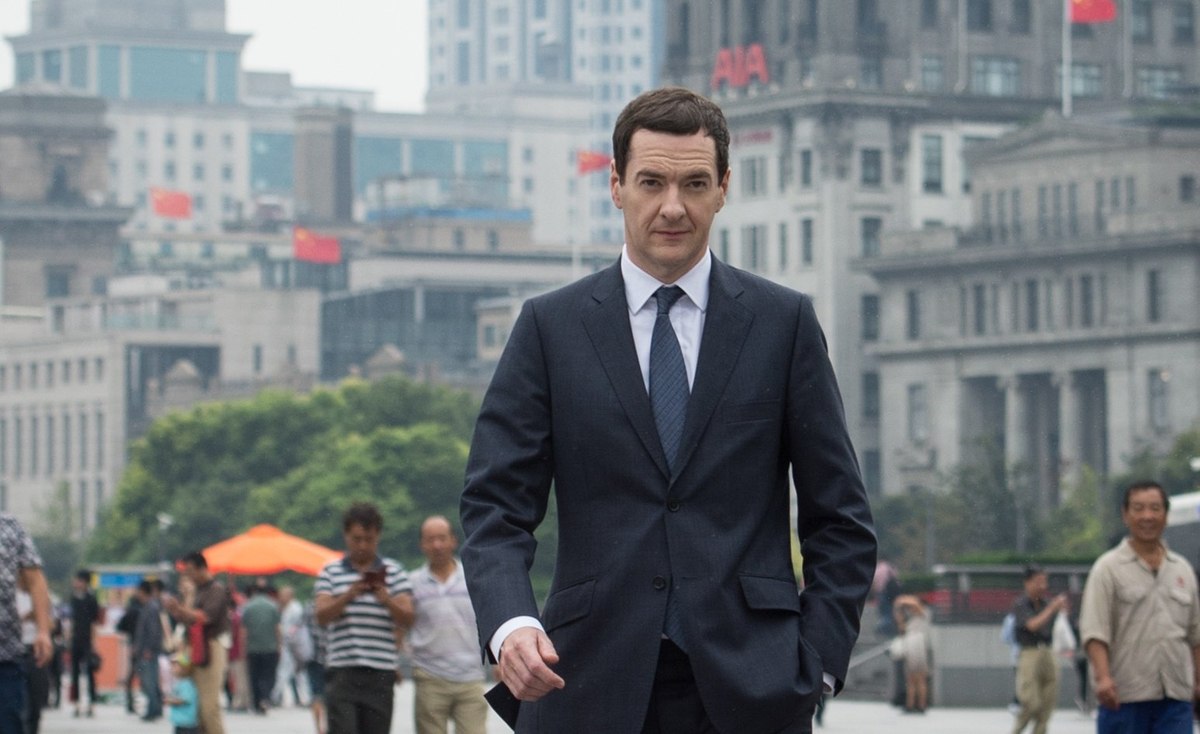George Osborne has been in China on a high-profile trade mission. The Chancellor wants to make Britain China’s ‘best partner in the West’ and to turn China into this country’s second largest trading partner by 2025.
He wants to open up Chinese markets to British exporters and to attract Chinese investment in major British infrastructure projects such as his own pet scheme, the creation of a northern powerhouse. But perhaps his most controversial move is to pave the way for signing the Chinese up to help build new nuclear power plants in Britain. Should we let China have a finger on our light switch?
Under governments of all political persuasions, attempts to make sure Britain has enough secure electricity-generating capacity have been a catalogue of delay, U-turns, head-scratching and inaction for at least twenty years. The reason is not simply that power stations are extremely expensive to build. It’s more that they have to be economically viable over a long period and it is difficult to calculate how best to achieve that when the benchmark cost of energy, the price of oil, varies as dramatically as it has over the last decade. Add to that uncertainty the need to take into account other factors, such as Britain’s legally-binding commitment to reduce carbon emissions and the anxiety not to become dependent on a single, vulnerable source of energy, and indecision becomes almost inevitable. The result is that there is now genuine alarm among experts that we are not far from risking the lights going out.
There is no better indicator of the inaction that has plagued policy in this area than the fact that it is over twenty years since a nuclear power plant has been built in Britain. That’s in spite of the fact that most existing nuclear plants in Britain are due to be decommissioned and almost all those involved in energy policy believe that nuclear power must be part of the overall mix. The nearest we have got to a new nuclear reactor is at Hinkley Point in Somerset, where the French electricity-generating firm, EDF, wants to build a new 3,200 megawatt plant, with some of the investment coming from two Chinese investors. In order to help them seal the deal, Mr Osborne announced in Beijing this week that the government would provide £2bn-worth of loan guarantees. It’s now thought it will go ahead and will provide 7% of Britain’s electricity needs from 2023.
Building Hinkley Point C is stupendously expensive. The current estimated cost is £24bn which Peter Atherton, a utilities analyst, reckons is as much as the cost of Crossrail, the 2012 Olympics and the refurbishment of Terminal 2 at Heathrow combined. Critics of the project point out that this amounts to a cost of £6.9m per megawatt compared to only £3.5m per megawatt for building an offshore wind plant, £1.5m for onshore wind and just £0.5m for a gas-powered plant. In addition, they contend that EDF’s building of a reactor of the same design at Flamenville, in France, has incurred a cost overrun of £5.2bn and that there remain serious unresolved problems with the design itself.
But controversy over the cost extends way beyond the bill to build the plant. In order to ensure that EDF can ultimately generate enough profit to make it worth their while to get involved at all, the government has agreed to guarantee for 35 years a price per megawatt hour of £89.5. This compares with the current wholesale price of electricity of just £44 per megawatt hour. Price guarantees for both onshore wind generation and solar power are less than this.
Opponents of nuclear power in principle also argue that the problem of how to deal with nuclear waste has not adequately been solved and will, in any case, hugely add to the overall bill.
All in all, then, opponents of Hinkley Point argue that it is massively expensive and should be dropped.
The Energy Secretary, Amber Rudd, who is in China with Mr Osborne, acknowledges that Hinkley Point is ‘not cheap’, but argues that nuclear power must be part of the mix. To rely more on gas-generation would certainly be cheaper but it would be inconsistent with our commitment to reduce carbon emissions and would make us too dependent on Russia for our gas supplies. As for renewables, the government argues it wants to increase its share of the overall market but that reneweables cannot be the main source of baseload generation because solar, wind and wave generation isn’t reliable enough.
Hence the need for new nuclear generation. Ms Rudd looked beyond what she hoped would be the final signing of the deal involving the French and the Chinese to build Hinkley to a purely Chinese project, involving a Chinese design, for a new nuclear plant at Bradwell in Essex.
But this suggestion has raised alarm of a quite different order. Letting the Chinese build and have control over a British nuclear power plant on which our electricity generation depends is far too great a security risk, it’s argued. It gives a foreign power with whom we might, on other issues, be seriously at odds, far too great a leverage over a matter of vital national concern, our ability to generate electricity. Neither the United States, nor Canada nor Australia allows foreign companies to own vital national infrastructure and nor, it’s argued, should we.
What’s more, say the critics, it is quite unnecessary. However advantageous it may be to try to tap into the vast sources of cash China has at its disposal, when it comes to infrastructure projects of vital national strategic interest, the British government should fund them itself, taking advantage of historically very low long-term interest rates to borrow the money.
So is George Osborne right to be trying to woo China as a big investor in Britain? And in particular, should he be trying to raise the vast sums necessary to finance new nuclear plants such as Hinkley Point and even be ready to allow China to build, pay for and own part of our electricity-generating capacity?










